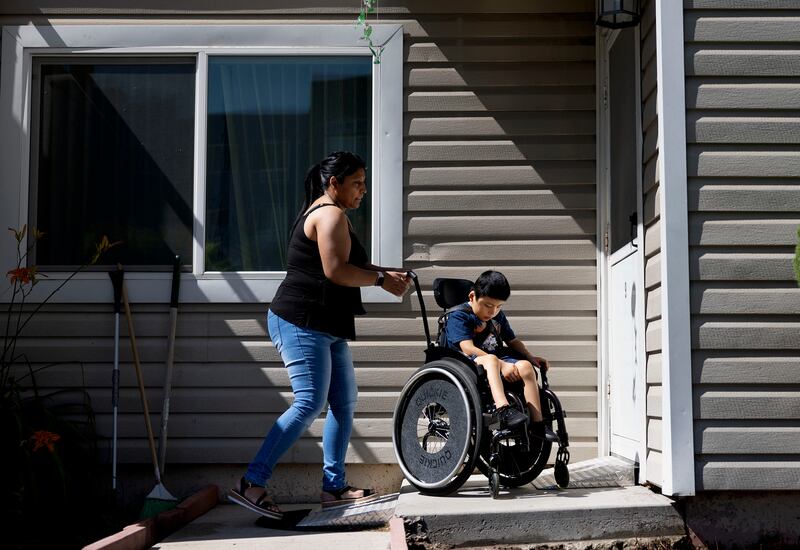Disability is not a political issue; it is a universal human experience. At some point in our lives, whether through genetics, accident, illness or aging, disability will touch every family. Today, 25% of Americans live with a disability, a figure that transcends every demographic and community, including our own here in Utah. For decades, the federal government’s leadership and investment in disability services have been essential, forming a robust partnership with states to ensure that no one is left behind.
At the heart of this vital infrastructure are University Centers for Excellence in Developmental Disabilities (UCEDDs). These are not political programs or “DEI” initiatives; they are congressionally authorized, federally mandated centers established under the Developmental Disabilities Act, with at least one in every U.S. state and territory. For over 60 years, UCEDDs have been the cornerstone of disability innovation and community engagement, transforming lives in profound ways.
Before the establishment of UCEDDs in the 1960s, the average life expectancy for individuals with disabilities in segregated institutional settings was a mere 36 years. Today, thanks to the improved access to healthcare, education and social integration — much of it pioneered and championed by UCEDDs — life expectancy for people with disabilities in our communities has soared to 74 years. This is not just a statistic; it represents millions of lives made longer, healthier and more fulfilling.
UCEDDs deliver vital services across the lifespan, from early intervention for children with disabilities, to job training, healthcare and family support. UCEDDs train thousands of professionals — educators, therapists, doctors, social service workers and advocates — who serve our communities every single day to ensure that people with disabilities and their families get the services and supports they need. Furthermore, UCEDDs lead groundbreaking research that drives evidence-based practices and policy innovation, while also fostering a deeper understanding of the causes and diagnosis of various disabling conditions.
UCEDDs are a bridge between academic research and community practice, helping to translate evidence into real-world solutions and policy recommendations, ensuring supports are efficient, effective and evidence-based.
Here in Utah, our own UCEDD, the Utah State University Institute for Disability Research, Policy & Practice (USU IDRPP), stands as a testament to this impact. Since its founding in 1972, the IDRPP has grown into the largest single on-campus research center at USU, employing over 230 personnel who work tirelessly across Utah and the nation. In 2025 alone, the IDRPP provided direct services and supports for over 3,150 children and adults with disabilities in Utah. Its research, training and technical assistance programs reached over 379,000 people nationwide.
The federal investment in the IDRPP is a model of fiscal responsibility. With less than $650,000 in core federal funding, the IDRPP leverages this to secure an additional $33 million in extramural funding annually to USU and the State of Utah. This translates to an exceptional return on investment of nearly $50 for every federal dollar received. This is not merely a sound financial investment for taxpayers and the university; it is a lifeline for people with disabilities who rely on these programs to live, learn and work independently within our communities. The IDRPP’s comprehensive programs span early intervention, assistive technology, digital accessibility, autism support, workforce development, mental health, supported employment, community living, special education, child development and nutrition.
The current proposal by the U.S. Department of Health and Human Services to eliminate dedicated funding for UCEDDs and redistribute it to states as unrestricted block grants is a grave threat. While the total funding might not disappear, there are no guarantees that these funds would continue to support UCEDDs or even people with developmental disabilities at all. This misguided approach would dismantle critical infrastructure, jeopardize decades of progress and diminish Utah’s capacity to address the evolving needs of people with disabilities and their families. It would lead to lost jobs and shattered research capacity and would leave tens of thousands of Utahns and millions of Americans without critical supports.
The Developmental Disabilities Act established a comprehensive support system, funding three core programs in every state: UCEDDs, Developmental Disabilities Councils, and Protection & Advocacy Organizations. This coordinated network drives policy, provides training and protects civil rights, creating a robust infrastructure for inclusion and systemic change. Eliminating any part of this system weakens the whole.
The time to act is now. UCEDDs have been instrumental in moving our nation from institutionalization and segregation to self-determination and community living for people with disabilities. Our nation’s leadership and commitment to disability rights must not falter. Congress must reject any proposal to eliminate or reduce funding for UCEDDs and instead recommit to strengthening these vital centers, along with the other critical components of the Developmental Disabilities Network. This is essential for Utah, for the nation, and for generations to come.

